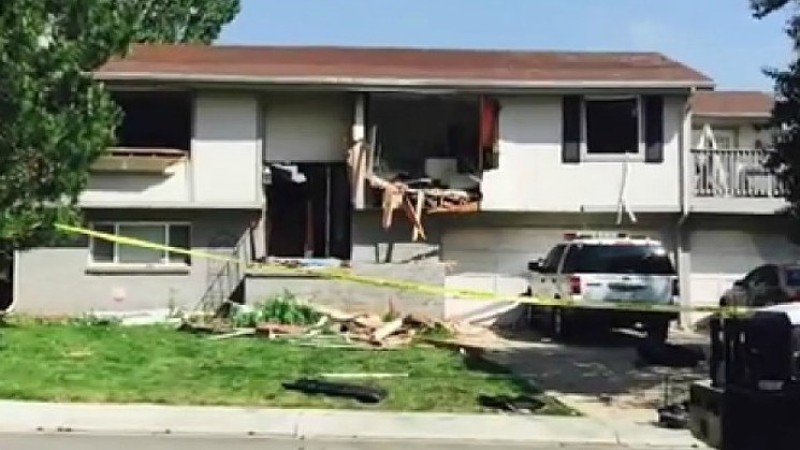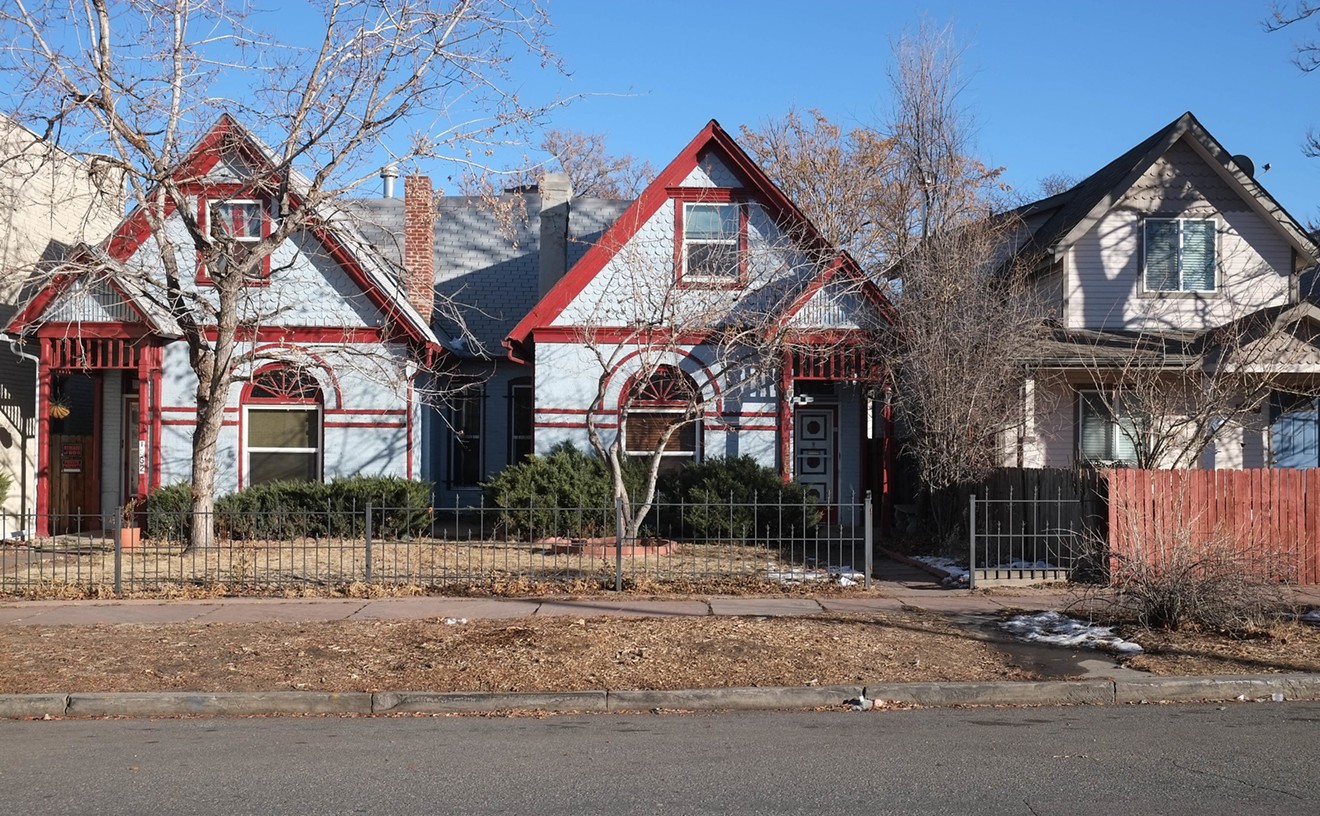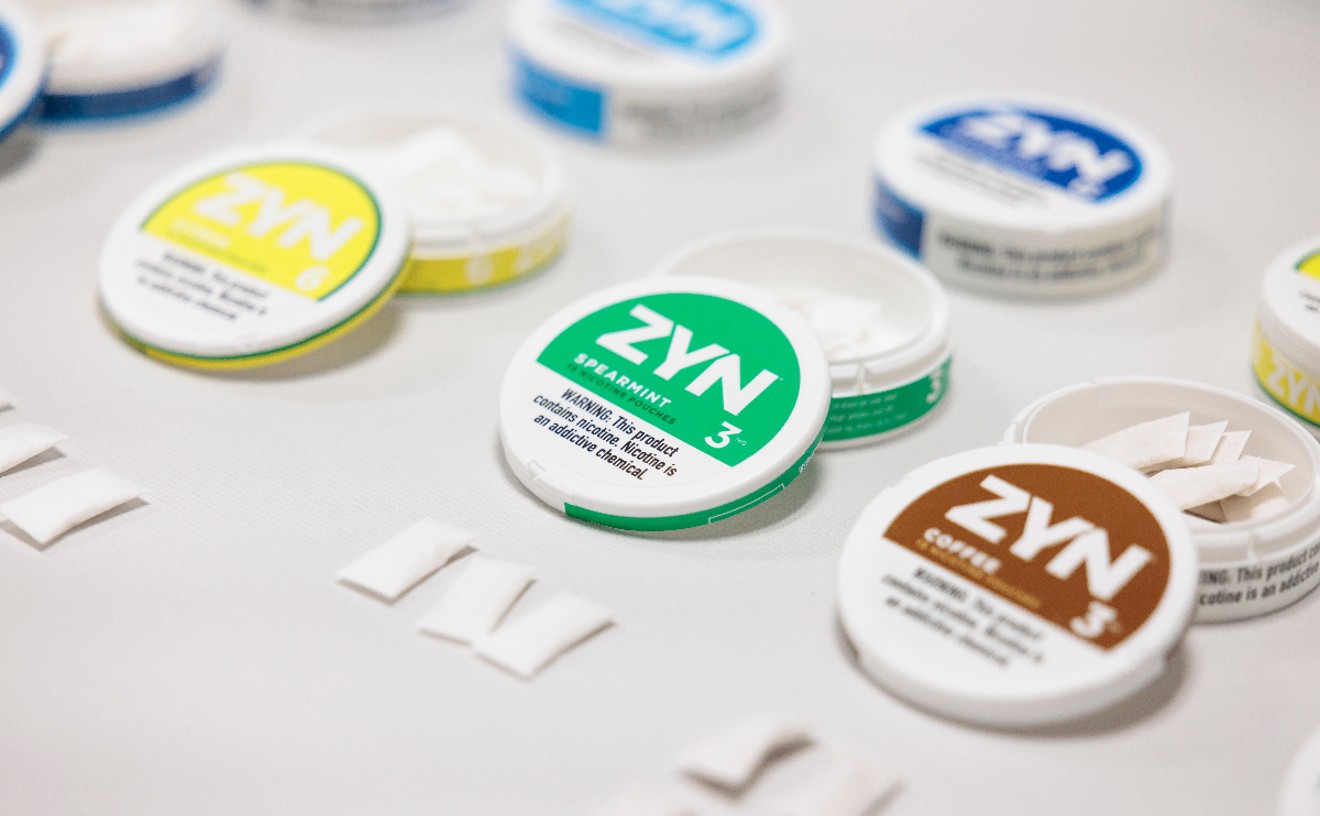"No one is questioning whether the police tactics were reasonable," stresses Jeffrey Redfern, an Institute for Justice attorney working with Denver-based attorney Rachel Maxam, who represents the Lech family in their case seeking compensation from Greenwood Village. "They managed to deal with the situation without anyone getting hurt or any loss of life. The question is: Should the cost be shouldered by one unlucky individual, or by society as a whole?"
The incident began on June 3, 2015, when Seacat fled the Greenwood Village Walmart pursued by police. He wound up holing up at the Lech house, a location apparently chosen by sheer chance.
The dwelling's residents were Leo's son, John Lech, who's a plaintiff in the case along with his father and mother, Alfonsina; Anna Mumzhiyan, John's then-significant other; and Mumzhiyan's nine-year-old, D.Z., the only person at the home when Seacat entered. The boy managed to get away within minutes — and lucky thing, since all hell broke loose shortly thereafter. The tools used to dislodge Seacat, who was armed and reportedly fired at officers, included 40mm rounds, explosives, tear gas and flash-bang grenades, one of which was thrown so badly that it bounced back toward assorted cops, "forcing them to scatter," the complaint notes.
A total of "68 cold chemical munitions and four hot gas munitions" were launched into the Lech home, by the suit's count, and some of them got stuck in the walls. Holes were also blasted through the windows and doors. And then came the battering ram.
After Seacat was taken into custody, the case maintains, Leo Lech and the home's residents were told that the house had sustained "some damage." That turned out to be a mammoth understatement. The residence wound up being condemned, and the three people who lived there lost "all but a few of their personal belongings, including clothing, toys, basic household items, furniture, appliances and other personal effects," such as a treasured ring and a family heirloom that survived World War II in Italy...but not the Greenwood Village SWAT team.

Homeowners Leo and Alfonsina Lech are petitioning the U.S. Supreme Court.
Courtesy of the Institute for Justice
Because of these issues, John, Anna and D.Z. had to move to Leo Lech's house in Douglas County, thirty miles south of their old place. The decision forced John to take a new job at a lower salary, the complaint notes, since driving to his previous gig downtown would have required a two-hour commute, and D.Z. had to change schools and leave his friends behind, compounding the trauma he'd experienced.
Amid public sympathy for the home's residents, Greenwood Village eventually offered $5,000 to cover Leo Lech's home-insurance deductible fee — an incredibly inadequate sum, the suit contends. But from the beginning, attorney Maxam knew that increasing the figure would be difficult. After all, the Colorado Governmental Immunity Act restricts suits against municipalities such as Greenwood Village, and complaints against individuals can only succeed if said individuals are found to have acted willfully and wantonly — which is why she refiled the suit in U.S. District Court after an initial filing in Arapahoe County Court.
"Our argument is that what happened was a takings under the Fifth Amendment," Maxam told Westword in 2018. "Both the Colorado Constitution and the U.S. Constitution say the government can't take private property for public use without just compensation."
A three-judge panel for the Tenth Circuit Court of Appeals, which heard the case after the U.S. District Court sided with Greenwood Village, saw things differently. One section of the ruling, penned for the majority by Judge Nancy L. Mortiz, reads: "Contrary to the Lechs' position, at least three of our sibling circuits and the Court of Federal Claims have expressly relied upon the distinction between the state’s police power and the power of eminent domain in cases involving the government’s direct physical interference with private property." Another maintains: "Although the Supreme Court has never expressly invoked this distinction in a case alleging a physical taking, it has implicitly indicated the distinction applies in this context."
Referencing an 1887 U.S. Supreme Court case known as Mugler v. Kansas, Moritz writes: "We do not disagree that the defendants’ actions benefited the public... When the state acts to preserve the 'safety of the public,' the state 'is not, and, consistent with the existence and safety of organized society, cannot be, burdened with the condition that the state must compensate [affected property owners] for pecuniary losses they may sustain' in the process."
The Institute for Justice got involved in the case in 2019, and last November, its attorneys asked the full Tenth Circuit, which consists of twelve judges, to reconsider this ruling. After that request was denied, the U.S. Supreme Court became the last option.

Two booking photos of Robert Seacat.
Greenwood Village Police Department/Colorado Department of Corrections
He adds, "The actual issue we're presenting to the Supreme Court is quite limited. The Tenth Circuit said the government only has to pay for property that it takes under the power of eminent domain, like when it files a condemnation action to seize your property. That's a categorical exception not supported in case law. So all we're asking the Supreme Court to say is that there is no categorical exception. It depends on facts and circumstances. If someone was holed up in their own house, they wouldn't have a claim, because they would have unclean hands from a legal perspective. The result could be different if the action was accidental, too. But there's no dispute in this case: Police officers were actually instructed to destroy as much of the house as possible without making it fall in."
Leo Lech did get some assistance when it came to making repairs, Redfern acknowledges: "He was partly covered by insurance. From what I understand, whenever there's a fire, you get covered, and they found evidence of incendiary devices. But it certainly wasn't enough to make him whole, and it didn't cover all of their possessions and the loss of the property while they were trying to rebuild."
If the Supreme Court does agree to consider the matter, Redfern is optimistic that the Leches will finally win the day. "I think if this case gets granted, it very likely will be a 9-0 reversal," he says. "There was a case just a few years ago called Arkansas Game & Fish v. The United States, where a lower court said there was a categorical exception to the just-compensation clause for what they called intermittent flooding; the Army Corps of Engineers was opening this dam at certain intervals, flooding areas downstream and destroying woodland. But the Supreme Court reversed that 9-0 and said, 'There isn't a categorical rule in this case. Go back and try again. Stop inventing this categorical rule out of nothing and look at all the facts and circumstances.' And that's what we're asking to happen here."
Redfern predicts that the U.S. Supreme Court will decide whether or not to hear the case sometime in June.
Click to read the U.S. Supreme Court petition in the case of Leo Lech et al., v. City of Greenwood Village et al., as well as the original Greenwood Village SWAT team lawsuit and the Tenth Circuit Court of Appeals ruling.












